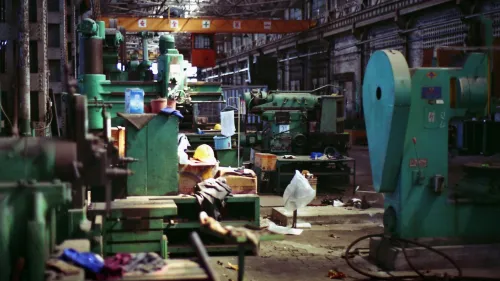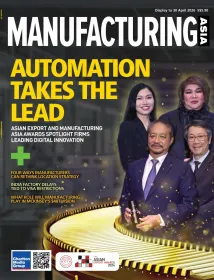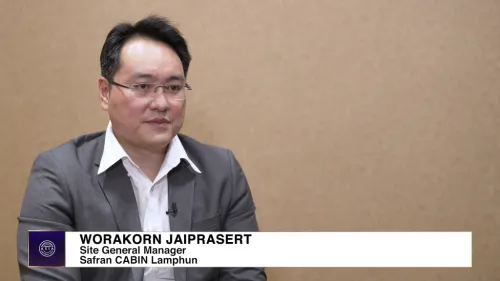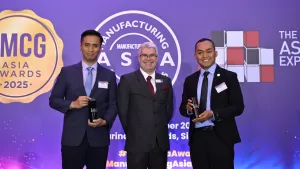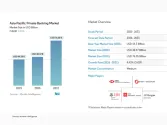
EY’s Atul Chandna highlights AI, IoT, and data’s role in transforming supply chains
Chandna shares strategies for leveraging technology, sustainability, and adaptive leadership to turn disruption into opportunity.
Supply chain disruption is no longer an occasional headache; it has become a defining challenge for manufacturers across Asia Pacific. From geopolitical tensions to natural disasters, shocks to logistics, costs, and market access can ripple around the globe in an instant.
Atul Chandna, EY Asean Supply Chain & Digital Innovation Leader, brings decades of experience in supply chain strategy, advanced analytics, and digital transformation to tackle these challenges head-on. He has guided numerous multinational clients through large-scale transformation programmes, from business strategy and process re-engineering to technology architecture.
He has also led many advanced supply chain analytics and process consulting initiatives, as well as designed and implemented supply chain control towers in Europe and the Asia-Pacific region.
In this interview, Chandna discusses how manufacturers can balance resilience with efficiency, harness AI and IoT for tangible impact, and prepare for Asia Pacific’s evolving role as a global manufacturing hub.
From your vantage point, what are the biggest supply chain risks and opportunities facing Asia Pacific manufacturers today?
Asia Pacific is at the centre of global supply chains, so disruptions here may have ripple effects around the world. Geopolitical tensions, natural disasters, and shifting trade policies remain the biggest risks, causing shocks to costs, logistics, and market access. However, opportunities are just as significant, from digital supply chain technologies to regional trade agreements like the Regional Comprehensive Economic Partnership (RCEP) and rising demand for sustainability. Manufacturers that build transparency and greener supply chains are better placed to compete globally.
Many manufacturers are under pressure to balance resilience with cost efficiency—how can they achieve both without compromise?
This used to be seen as a trade-off, but increasingly, resilience and efficiency go hand in hand. Embedding technologies like artificial intelligence (AI) and Internet of Things (IoT) into operations enables real-time monitoring and predictive maintenance. At the same time, diversifying the supplier ecosystem and shifting toward modular or flexible manufacturing creates the ability to respond quickly to disruption. In essence, the playbook for manufacturers today should focus on supply chains that are intelligent, adaptive and data-driven, which ultimately improves agility and cost efficiency.
In your opinion, which technologies are showing the most tangible value for manufacturers right now?
We are now moving from experimentation to real impact. AI and IoT are already transforming plant floors by enabling predictive maintenance, reducing costly downtime, optimising the use of resources and improving forecasting accuracy. Blockchain has gained ground in supply chain management by enhancing transparency, improving secure traceability of goods, and helping manufacturers meet compliance and sustainability requirements. The technologies that are showing the most value are not those creating futuristic scenarios but those delivering measurable improvements in speed and reliability across manufacturing networks today.
How do you see Asia Pacific’s role in global manufacturing evolving over the next five years?
Over the next five years, Asia Pacific is poised to strengthen its position as a global manufacturing powerhouse. This will be driven by continued investments in advanced technologies, from AI-enabled production to smart factories, alongside improvements in infrastructure and logistics that support greater efficiency and connectivity. Regional trade agreements will further deepen intra-Asia trade and encourage manufacturers to invest and innovate locally. We can expect the region to increasingly specialise in high tech and precision manufacturing.
From your experience advising multinationals, what are the top leadership qualities needed to successfully drive transformation in manufacturing organisations?
Successful transformation in manufacturing requires leaders who combine strategic vision with practical execution. Adaptability is critical, as leaders must navigate rapidly evolving technologies, market shifts, and regulatory changes. Strong communication skills are equally important to align diverse teams and external partners around a shared purpose. Beyond this, the most effective leaders foster a culture of innovation and collaboration, encouraging experimentation and learning whilst embedding data-driven decision-making into day-to-day operations.
As a judge, what qualities or innovations will you be looking for in the entries for this year's Manufacturing Asia Awards?
When evaluating entries, I will be looking for innovations that are not only creative but also scalable. Sustainability is a key factor, whether it’s reducing waste, improving energy efficiency or designing circular processes, along with the ability to address real industry challenges. Tangible impact matters most. Entries should demonstrate measurable benefits to the manufacturing process, supply chain, or workforce, and show a clear pathway from concept to implementation. The strongest entries will combine forward-looking thinking with demonstrable results, reflecting the kinds of solutions that will shape the future of manufacturing in Asia Pacific.
